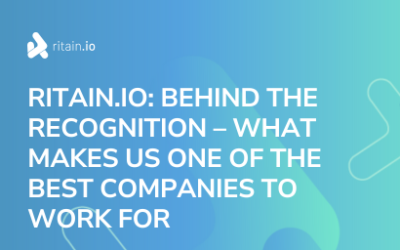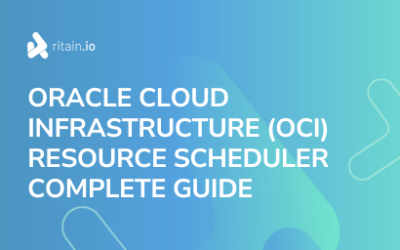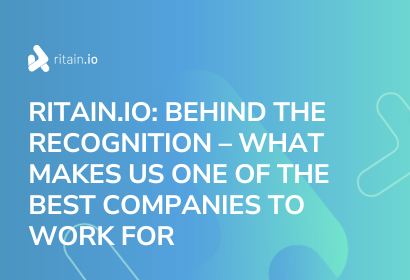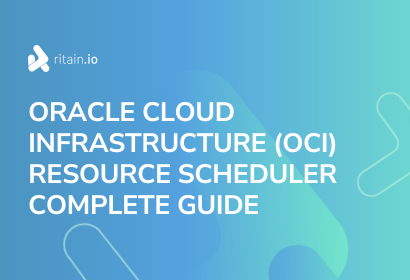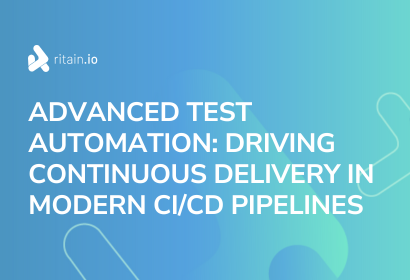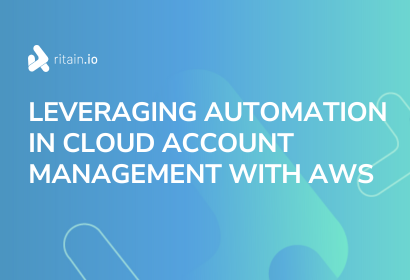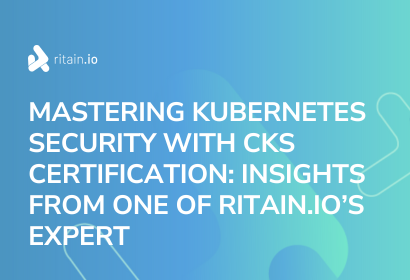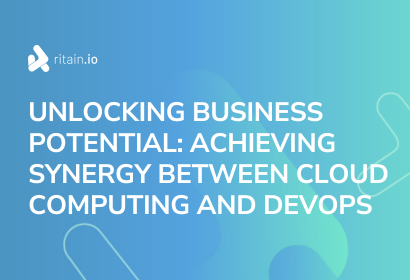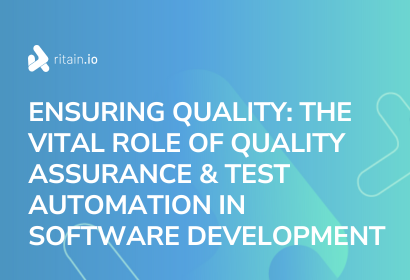BLOGS AND INSIGHTS:
ROBOTIC PROCESS AUTOMATION: HOW RPA IS TRANSFORMING BUSINESSES
Businesses are seeking innovative solutions to simplify operations and boost efficiency, and Robotic Process Automation (RPA) is one the most game-changer services offered by Ritain.io, employing software bots to automate repetitive tasks traditionally done by humans.
Unlike traditional methods, RPA offers agility and flexibility, allowing rapid, non-invasive automation across various systems without extensive coding. This versatility empowers organizations to achieve efficiency gains and cost savings, driving growth in the modern era of automation.
Benefits of Robotic Process Automation
Implementing Robotic Process Automation (RPA) offers various benefits to businesses, revolutionizing operational efficiency and cost-effectiveness:
Increased Efficiency
Robotic Process Automation simplifies repetitive tasks with precision, minimizing errors and enhancing productivity. By automating routine processes such as data entry and report generation, RPA allows employees to focus on strategic initiatives, driving overall efficiency within the organization.
Cost Savings
Robotic Process Automation significantly reduces operational costs by automating manual tasks that would otherwise require human intervention. With fewer resources dedicated to repetitive activities, businesses can reallocate manpower to higher-value tasks, ultimately optimizing resource utilization and maximizing cost savings.
Scalability
One of RPA’s key advantages is its ability to scale up or down based on business needs. Whether handling a surge in workload or adjusting to fluctuations in demand, RPA can adapt quickly without requiring significant additional resources or infrastructure investment. This scalability ensures that businesses can maintain operational efficiency and flexibility in a dynamic environment.
Implementation of RPA
Implementing Robotic Process Automation (RPA) requires various crucial aspects. Firstly, businesses must meticulously assess processes for automation, considering factors like volume, frequency, and rule-based nature. This evaluation ensures that the selected tasks are best suited for RPA implementation, maximizing the efficiency gains and operational benefits.
Providing an overview of the diverse range of RPA tools and platforms available in the market helps organizations in making informed decisions aligned with their specific needs and objectives. Understanding the unique features and capabilities of these tools facilitates the selection of the most suitable solution adjusted to the organization’s requirements.
Seamless integration of RPA with existing IT infrastructure and applications is essential for the success of automation initiatives. By emphasizing the importance of integration, businesses can prioritize compatibility and interoperability, ensuring smooth collaboration between RPA systems and existing technology frameworks.
Additionally, effective training and change management strategies are indispensable for fostering successful RPA implementation and user adoption. Equipping employees with the necessary skills through comprehensive training programs empowers them to leverage RPA tools effectively, while proactive change management minimizes resistance and facilitates a seamless transition to automated workflows.
By addressing these key implementation considerations, organizations can benefit from the full potential of RPA to drive efficiency, innovation, and competitiveness.
Use cases of Robotic Process Automation across Industries
Robotic Process Automation (RPA) is reshaping operations across various industries, optimizing processes, and driving efficiency gains:
Telco
Robotic Process Automation is increasingly being adopted in the telecommunications industry to optimize various processes such as billing, customer service interactions, and network management. By automating tasks such as invoice processing and customer support ticket routing, RPA improves efficiency, reduces errors, and enhances customer satisfaction within the Telco sector.
Finance and Accounting
RPA transforms financial operations by automating tasks such as invoice processing, account reconciliation, and financial reporting. By simplifying these processes, Robotic Process Automation minimizes errors, accelerates workflows, and enhances compliance in the finance and accounting domain.
Healthcare
In the healthcare sector, Robotic Process Automation is revolutionizing patient data management, claims processing, and administrative tasks. RPA frees up healthcare professionals to focus on patient care, improves accuracy in claims processing, and enhances overall operational efficiency.
Manufacturing
Robotic Process Automation plays a pivotal role in manufacturing by improving supply chain management, inventory tracking, and order processing. By automating manual tasks along the production line, RPA enhances inventory visibility, accelerates order fulfillment, and ensures seamless coordination across the manufacturing process.
Customer Service
RPA enhances customer service operations by automating responses, ticket routing, and data retrieval. By leveraging Robotic Process Automation bots to handle routine inquiries and tasks, businesses can deliver faster response times, personalized interactions, and improved customer satisfaction.
Human Resources
Robotic Process Automation facilitates human resources functions by automating tasks such as employee onboarding, payroll processing, and performance evaluations. By automating these administrative processes, RPA enables HR teams to focus on strategic initiatives, talent development, and employee engagement efforts.
NEWSLETTER
SUBSCRIBE TO OUR NEWSLETTER
Sing up to receive our most recent use cases, blogs and insights.
How Ritain.io can help implement RPA in your business and address its challenges
Offering vast knowledge and expertise in the industry with cutting-edge technologies, Ritain.io is ready to develop tailored solutions to guide companies through every stage of the RPA implementation journey. With a comprehensive suite of services, including process assessment, tool selection, integration support, and training programs, Ritain.io empowers businesses to identify optimal automation opportunities and seamlessly integrate RPA into their existing workflows.
Ritain.io’s commitment to ongoing support and collaboration ensures that businesses receive continuous assistance and guidance, enabling them to maximize the benefits of RPA and drive sustainable growth and innovation.
We understand that each organization has unique needs and challenges, so our team of experts works closely with clients to develop customized strategies and solutions that align with their specific goals and objectives. By harnessing the power of RPA in partnership with Ritain.io, businesses can unlock new levels of efficiency and productivity, positioning themselves for success in today’s evolving digital landscape.
Additionally, Ritain.io provides scalable RPA solutions and ongoing support to manage maintenance and scalability challenges effectively. Addressing employee concerns through change management programs and upskilling initiatives ensures a smooth transition to automated workflows.
Future Trends in Robotic Process Automation
Robotic Process Automation (RPA) is undergoing a significant evolution, driven by emerging trends that will redefine automation capabilities. Cognitive automation integrates advanced technologies like machine learning and natural language processing to enhance RPA’s intelligence and adaptability. This enables RPA bots to handle complex tasks and interact with users naturally, advancing automation solutions across industries.
Hyperautomation combines RPA with complementary technologies such as AI, process mining, and analytics, empowering organizations to automate end-to-end business processes with unprecedented efficiency and innovation.
Also, the rise of citizen developers democratizes RPA implementation, allowing individuals with minimal coding skills to contribute to automation initiatives, fostering innovation, and collaboration within organizations. Through these advancements, Ritain.io is at the frontline, empowering businesses to benefit from the full potential of automation and drive transformative change.
Conclusion
Robotic Process Automation (RPA) emerges as a transformative force reshaping the landscape of modern business operations. Here we have explored the multifaceted benefits of RPA, from increased efficiency and cost savings to scalability and innovation across various industries. Note that RPA’s ability to simplify repetitive tasks, integrate with existing systems, and empower employees represents its indispensable role in driving organizational growth and competitiveness.
The transformative impact of RPA on businesses cannot be overlooked. By partnering with Ritain.io to embrace automation in your business, you can unlock new levels of efficiency, agility, and innovation necessary to thrive in today’s digital economy. Starting today, you can optimize processes, enhance customer experiences, and drive sustainable growth.
At Ritain.io, we are committed to accompanying your business on its automation journey and to reap all the benefits from the full potential of RPA.
PROOF OF SUCCESS
Check our
Blogs and News
Ritain.io: Behind the recognition – What makes us one of the best companies to work for
BLOGS AND INSIGHTS:RITAIN.IO: BEHIND THE RECOGNITION – WHAT MAKES US ONE OF THE BEST COMPANIES TO WORK FORRitain.io has proudly been named one of the Best Companies to Work For by EXAME magazine and ManpowerGroup Portugal. This recognition is a testament to our...
OCI Resource Scheduler: Complete Guide for Implementation
BLOGS AND INSIGHTS:ORACLE CLOUD INFRASTRUCTURE (OCI) RESOURCE SCHEDULER: COMPLETE GUIDE FOR IMPLEMENTATIONWhat is OCI Resource Scheduler for? The OCI Resource Scheduler is a cloud-native service provided by Oracle Cloud Infrastructure (OCI) to automate the...


